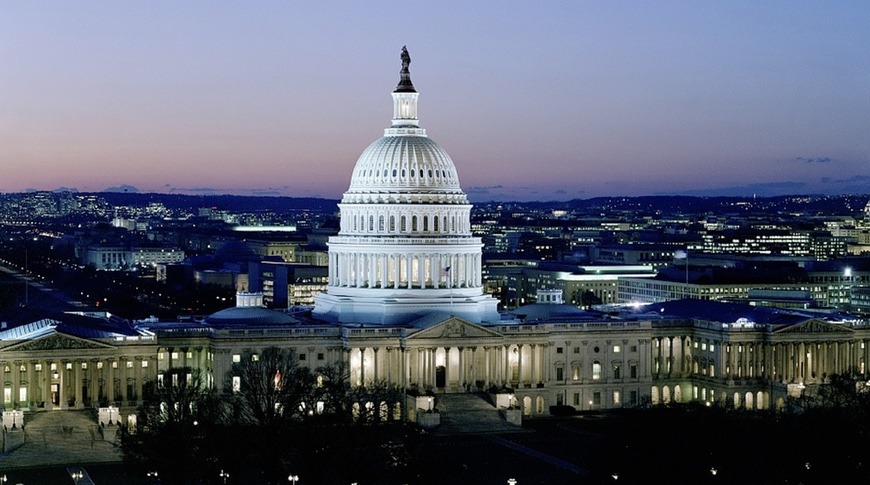Apple's calls for stronger privacy legislation aren't backed up by action, privacy advocates and U.S. Lawmakers suggest, claiming the iPhone maker isn't doing enough to help produce better privacy laws, and in some cases is lobbying against some efforts.
Apple prides itself on being a staunch supporter of privacy, marketing its devices as being encrypted and having policies that limit the amount of data it and connected companies are able to acquire from consumers. The company repeatedly refers to how privacy is a "fundamental human right," with CEO Tim Cook also taking time in interviews and other events to highlight the danger of not maintaining security around personal data.
Despite the talk, including calls to improve existing privacy legislation, the Washington Post writes lawmakers do not believe Apple is doing enough to meet their statements, with little done to further the cause outside of the general message.
In a spring meeting of six Democratic lawmakers with Cook at Apple Park, Cook started by asking for Congress to draft privacy legislation, with it being the first issue brought up according to Rep. Suzan DelBene (Wa). While Cook "really talked about the need for privacy," DelBene notes Cook didn't specifically endorse her proposed bill, one that would require firms to gain consent from consumers before using sensitive information in unexpected ways.
Other critics of Apple suggest there has been relatively little action from the company outside of the general declaration there is a need to tighten laws. In cases where some are close to passing laws that limit the sharing of data, state lawmakers say Apple isn't really a true ally, as it contributed to lobbying efforts to undermine some elements of the bills.
Despite calls for a federal privacy law, Apple has not yet offered any backing to proposed bills, notes Sen. Mark R. Warner (D-Va). "I would argue there's a need for Apple to be a more vocal part of this debate," Warner suggests.
One example of the lack of action from Warner was for a bill that would outlaw "dark patterns" that make users surrender their information when signing up for a service. While the bill was introduced in April and gained early support from Mozilla and Microsoft, Apple did not join in.
Meanwhile, state privacy bills in California, Illinois, and Washington are being softened or opposed by trade associations that count Apple as a member. Assemblyman Marc Levine (D-CA), who introduced two privacy bills this year so far, believes state laws are the best hope for privacy, given the slow state of federal versions, with the opposition frustrating him and other lawmakers.
In some cases, this is through organizations such as TechNet and CompTIA, lobbyist groups that count Apple alongside other tech giants.
"While headlines from Tim Cook have him being really forward on advancing the idea that policy can help control how data is used and mismanaged and abused, that hasn't played out in policymaking," Levine stresses. "I would welcome a stronger presence by Apple and I would also welcome their advocacy on what best practices should be."
Electronic Frontier Foundation legislative analyst India McKinney advised Apple has yet to sign on to privacy legislation that other firms, including DuckDuckGo, support, such as an amendment to California law that would stop the collection of consumer data by default and enable them to sue firms for violations. McKinney believes Apple's presence could help counter attempts by other tech firms to water down proposals, suggesting "That would make headlines. That would be really useful."
"We would be the first to say we can do more and constantly challenge ourselves to do so, Apple spokesman Fred Sainz advised in a statement regarding the report. "We have offered to help write the legislation and reiterate this offer."
 Malcolm Owen
Malcolm Owen







-m.jpg)






 Charles Martin
Charles Martin
 Marko Zivkovic
Marko Zivkovic
 Andrew Orr
Andrew Orr
 Amber Neely
Amber Neely

 William Gallagher and Mike Wuerthele
William Gallagher and Mike Wuerthele











12 Comments
Did these people not see ‘Sign in with Apple’ & other location,Bluetooth data usage warnings in iOS 13.
"One example of the lack of action from Warner was for a bill that would outlaw "dark patterns" that make users surrender their information when signing up for a service. While the bill was introduced in April and gained early support from Mozilla and Microsoft, Apple did not join in."
Did you by chance look into why Apple took this position?
Are these the same lawmakers that wanted Apple to build a backdoor into their OSes?
Advice for any company... Do not get into bed with any politicians. They will use you for their own objectives and then discard you like a McDonald’s Happy Meal bag on the highway. So while Google, Facebook, and other flagrantly violate user’s privacy on a daily basis these bozos are criticizing Apple. Love it.